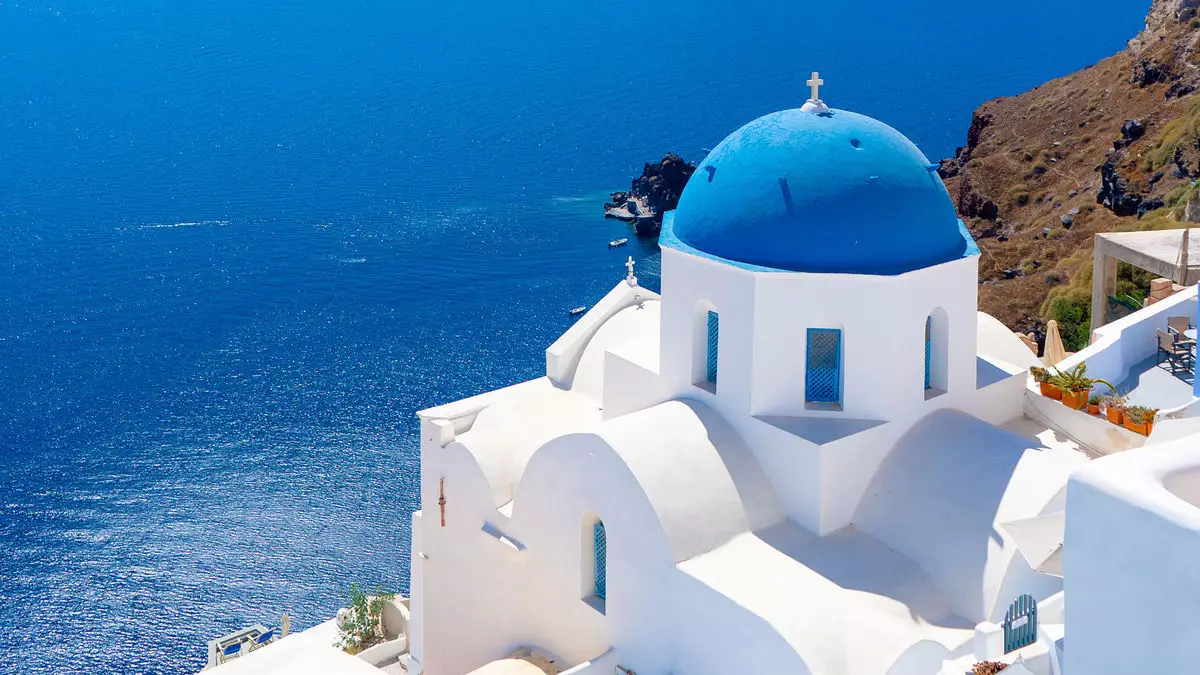Santorini, that jewel of the Aegean, has long captivated the hearts of travelers around the globe. However, as the island gears up for its bustling high season, it finds itself contending with lingering apprehensions caused by seismic activities that rattled the region earlier this year. A series of minor earthquakes beginning in late January prompted emergency measures, including temporary evacuations across Santorini and neighboring islands. Despite the fact that no serious injuries or significant structural damage were reported, the media coverage surrounding these events painted a less-than-favorable picture, thereby affecting the island’s tourism dynamics during one of the peak booking windows.
Markos Chaidemenos, the managing director of Canaves Collection, aptly describes the situation as a “PR disaster.” While he acknowledges that the tremors have subsided, they still seem to overshadow the island’s renowned beauty. Chaidemenos emphasizes that the narrative of devastation has curtailed the inflow of future bookings, notwithstanding a lack of cancellations. It’s a classic example of how perception, often exaggerated by sensational news stories, can disrupt the delicate ecosystem of tourism.
Reassuring Travelers and Positioning for Recovery
To counter this negative narrative, tourism officials and hoteliers on the island are rallying to assure potential visitors that Santorini is ready and waiting. Greece’s tourism minister, Olga Kefalogianni, reiterated that “there are no issues with the island’s tourism and essential infrastructure.” She seeks to reassure both prospective tourists and local businesses that life goes on uninterrupted. George Pitsinelis, general manager of the Magma Resort Santorini, echoes this sentiment by stating that local businesses, including hotels and restaurants, are fully operational and eager to welcome guests.
In an effective display of recovery and resilience, Santorini marked a significant milestone with the arrival of its first cruise ship for the season on March 23. Despite some initial cancellations due to the earthquakes, Pitsinelis reports that overall, cancellations have remained modest, and initial signs of recovery, including a boost in reservations, have begun to emerge.
Travel Advisors‘ Perspectives and Market Sentiment
The role of travel advisors in this situation is critical. They have become the bridge between the fears of their clients and the realities on the ground. For many, initial apprehensions gloriously morphed into a wait-and-see attitude rather than outright cancellations. Christos Stergiou, CEO of TrueTrips, conveys that while concerns among guests were prevalent, cancellations were not significant. Advisors, such as Katie Brown from Travelmation, experienced similar responses from travelers who had booked their trips, with many choosing to defer decisions.
As the information on Santorini’s recovery spreads, optimism is returning. Many travel agencies report an uptick in bookings reminiscent of pre-quake levels. Not only have travelers resumed interest, but it’s also noted that requests are being made for immediate dates such as Memorial Day and early June—significantly shorter timelines than the usual lengthy booking windows typically associated with travel to the iconic island.
Tackling Economic Influences on Travel Plans
While the seismic events may have disrupted tourism rhythm temporarily, there are other factors at play influencing travel decisions. Economic conditions, including high airfares and inflation, are siphoning enthusiasm from potential visitors. Brown highlights a trend where travelers are now gravitating towards “off-the-beaten-path” destinations, seeking value in their experiences while being conscious of spending.
Petros Zissimos of Hellenic Holidays concurs, suggesting that while general interest in Santorini may be resilient, broader economic considerations will negatively impact tourism this year. The concern transcends earthquakes and taps into anxieties related to the U.S. election cycle and rising living costs. Furthermore, shifting trends toward avoiding traditional busy months and embracing shoulder seasons have created unusual patterns in tourist traffic, complicating the forecasting strategies for hoteliers.
Innovative Strategies to Boost Demand
In light of these fluctuating conditions, hotel operators are not merely sitting back and hoping for business to return. They are proactively implementing strategies to entice visitors. Offering promotional deals such as “stay three nights, get a fourth free,” hoteliers are working collaboratively to ensure that interest levels rise substantially during off-peak periods.
The immediate future of Santorini hinges on strategic communication, concerted efforts from local stakeholders, and a renewed sense of optimism among travelers. As the island’s beautiful landscapes combined with the warmth of its people beckon, Santorini is poised to reclaim its spot as one of the world’s premier travel destinations, undeterred by recent events.


Napsat komentář